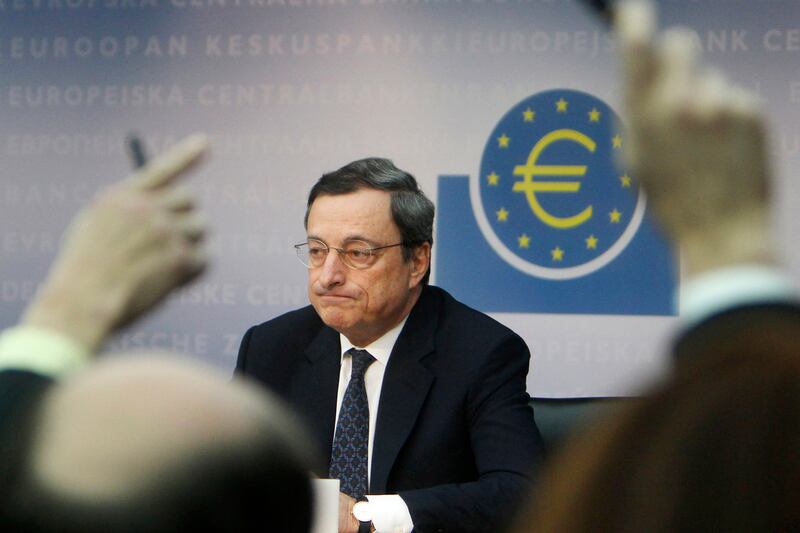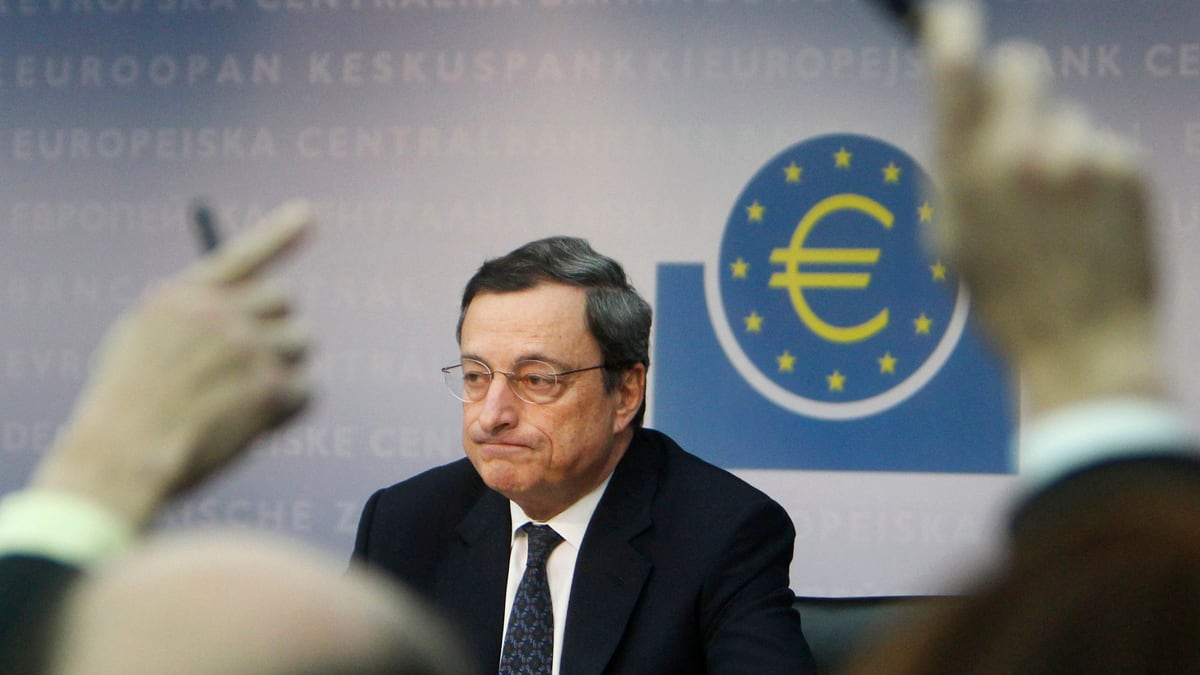I thought disasters were all meant to happen over the weekend? Somehow, in Brussels, European Union leaders contrived Thursday night to pull defeat out of the jaws of victory, leaving Friday for finger-pointing and recriminations and wondering whether anybody who signed on to this deal has any chance at all of even getting reelected, let alone being remembered as one of the leaders who saved the euro.
Remember how Wolfgang Münchau said the euro zone had to get it right at this summit or it would collapse? Well, the euro zone most emphatically has not got it right. Take any of the list of prescriptions—from Münchau, from Larry Summers, from Mohamed El-Erian—of the minimum necessary right now, and the one thing that jumps out at you, especially in light of the most recent news, is that if you look at anybody’s list, there’s an enormous number of items that have zero chance of actually happening.
Here’s how the Financial Times put it on Wednesday:
“It borders on hysterical to say there are but hours to save the euro, but there is a risk that if the crisis is not now tamed the price of a rescue might start to spiral out of politicians’ grasp. The stakes are therefore very high at Friday’s summit. The world cannot afford another half-baked solution.”
And yet, inevitably, another half-baked solution is exactly what we got. Which means, I fear, that it is now, officially, too late to save the euro zone: the collapse of the entire edifice is now not a matter of if, but rather of when.
For one thing, fracture is being built into today’s deal: rather than find something acceptable to all 27 members of the European Union, the deal being done is getting negotiated only among the 17 members of the euro zone. Where does that leave EU members like Britain, which don’t use the euro? Out in the cold, with no leverage. If the U.K. doesn’t want to help save the euro—and, by all accounts, it doesn’t—then that in and of itself makes the task much more difficult.

But that’s just the beginning of the failures we’re seeing from European leaders right now. It seems that German Chancellor Angela Merkel is insisting on a fully fledged treaty change—something there simply isn’t time for, and which the electorates of nearly all European countries would dismiss out of hand. Europe, whatever its other faults, is still a democracy, and it’s clear that any deal is going to be hugely unpopular among most of Europe’s population. There’s simply no chance that a new treaty will get the unanimous ratification it needs, and in the mean time the EU’s crisis-management tools are just not up to dealing with the magnitude of the current crisis.
The fundamental problem is that there isn’t enough money to go around. The current bailout fund, the European Financial Stability Facility, is barely big enough to cope with Greece; it doesn’t have a chance of being able to bail out a big economy like Italy or Spain. So it needs to beef up: it needs to be able to borrow money from the one entity actually capable of printing money, the European Central Bank.
But the ECB’s president, Mario Draghi, has made it clear that’s not going to happen. Draghi is nominally Italian but in reality one of the stateless European technocratic elite: a former vice chairman and managing director of Goldman Sachs, he’s perfectly comfortable delivering Italy the bad news that he’s not going to lend her the money she needs. He’s very reluctant to lend it directly, he won’t lend it to the EFSF, and he won’t lend it to the IMF. Draghi has his instructions, and he’s sticking to them—even if doing so means the end of the euro zone as we know it.
And there’s more bad news, too. All of Europe’s hopes right now are being placed in something called the European Stability Mechanism—a permanent successor to the temporary EFSF. Since it’s permanent, the ESM is going to have to be constructed with the ability to put out fires of any conceivable size. And as such, it’s going to have to be able to borrow enormous amounts of money, and lend them on to countries that have found themselves in trouble.
But that would make the ESM, essentially, a bank. And the European leaders seem determined, today, to prevent the ESM from operating as a bank at all. Which means it will never get the firepower it needs to be taken seriously.
Oh, and did I mention that the ESM seems set to be capped at a mere 500 billion euros? That’s a lot of money, of course, but compare it with Italy’s total debt of roughly €2 trillion. And that isn’t even counting Spain, or Portugal, or Ireland, or whatever money Greece might yet still need.
Don’t think that Europe’s banks might be able to step in and lend their governments the money they need, either. The European Banking Authority, with exquisite timing, informed the world on Thursday that the continent’s banks need to raise €115 billion in new capital, including more than €15 billion for Spain’s Banco Santander alone. Where are they going to find that kind of scratch? Certainly not from their beleaguered governments. And there aren’t many private investors clamoring to invest in this particular train wreck, either.
It all adds up to one of the most disastrous summits imaginable. A continent that has risen to multiple occasions over the past 66 years has, in 2011, decided to implode in a spectacle of pathetic ignominy. Its individual countries will survive, of course, albeit in unnecessarily straitened circumstances. But the dream of European unity is dissolving in real time, as the eyes of the world look on in disbelief.
Europe’s leaders have set a course that leads directly to a gruesome global recession, before we’ve even recovered from the last one. Europe can’t afford that; America can’t afford that; the world can’t afford that. But the hopes of arriving anywhere else have never been dimmer.





